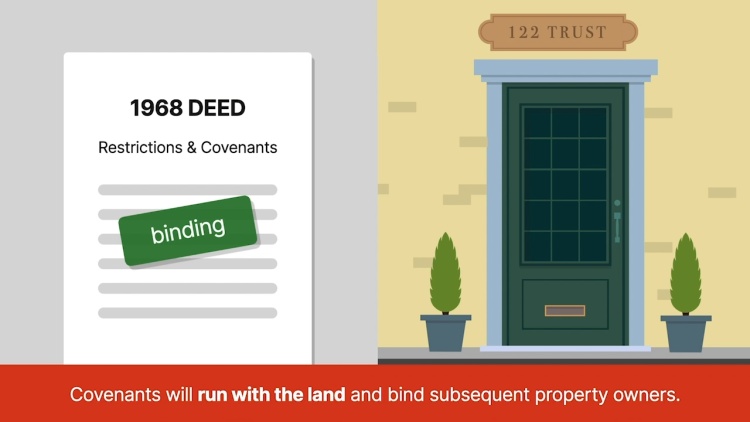Whitinsville Plaza, Inc. v. Kotseas
Massachusetts Supreme Judicial Court
378 Mass. 85, 390 N.E.2d 243 (1979)
- Written by Patrick Busch, JD
Facts
In 1968, Kotseas (defendant) conveyed a parcel of land to the trustees of 122 Trust (the Trust), a company owned by Whitinsville Plaza, Inc. (Plaza) (plaintiff). The deed included numerous land use restrictions and covenants that bound both Kotseas and the Trust. One of the covenants prohibited Kotseas from using the adjoining land, which he owned, to operate a business in competition with the discount department store that the Trust planned to operate on its land. The Trust opened a discount department store, and in 1975 conveyed the land, subject to the covenant, to Plaza. In 1977, Kotseas leased a portion of the adjoining land to CVS for use as a discount department store. The lease was expressly subject to the deed restrictions. Plaza filed suit against both Kotseas and CVS, requesting an injunction prohibiting Kotseas’ land from being used to operate a discount department store, plus an award of damages. In the alternative, Plaza asked the trial court to hold that its land was no longer subject to the use restrictions. Kotseas and CVS filed motions to dismiss, arguing that the covenants were unreasonable and in restraint of trade. The trial court dismissed, holding inter alia that the covenant did not touch and concern the land, and therefore did not run with the land and was not binding on CVS. Plaza appealed.
Rule of Law
Issue
Holding and Reasoning (Quirico, J.)
What to do next…
Here's why 907,000 law students have relied on our case briefs:
- Written by law professors and practitioners, not other law students. 47,100 briefs, keyed to 996 casebooks. Top-notch customer support.
- The right amount of information, includes the facts, issues, rule of law, holding and reasoning, and any concurrences and dissents.
- Access in your classes, works on your mobile and tablet. Massive library of related video lessons and high quality multiple-choice questions.
- Easy to use, uniform format for every case brief. Written in plain English, not in legalese. Our briefs summarize and simplify; they don’t just repeat the court’s language.





